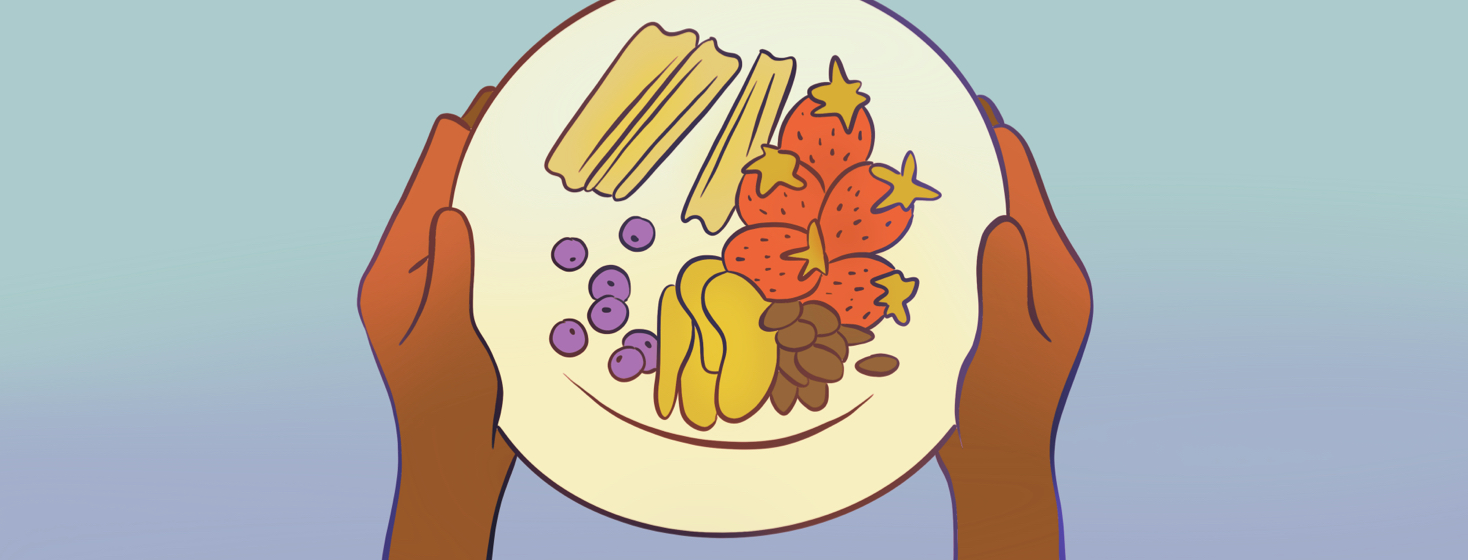Balancing A Healthy Diet During Lung Cancer Treatment
Proper nutrition to support your body during lung cancer treatment is essential to help maintain strength and well-being. That is because your body is undergoing many changes from drugs and other treatments, as well as the cancer itself.
You can take steps when considering the foods that will support your body and the changes occurring. This may include replacing old favorite foods with ones you tolerate better or adding calories and nutrients that give you strength and energy.
When considering dietary needs during lung cancer treatment, your goals should focus on:1
- Building or maintaining strength
- Better tolerating cancer treatments
- Maintaining your weight
- Lowering your risk of infection
- Your overall feeling of well-being
Snacking is good
Snacking is a great way to help include proper nutrition into your body throughout the day instead of just relying on 3 meals. You will also need to consider treatment side effects when choosing the right snack.
For example, if you have diarrhea or bloating, you may need to avoid fruits and vegetables that day. If you have sores in your mouth, you may need to avoid sharp-edged and acidic foods.2
Examples of favorite snacking foods include:2
- Cheese and crackers
- High-protein granola bars
- Cereal (hot or cold)
- Dips made with cheese, beans, yogurt, or peanut butter
- Fruit
- Granola or trail mix
- Smoothies with fresh fruit
- Ice cream, sherbet, and frozen yogurt
- Nuts, seeds, and nut butters
- Popcorn, pretzels
- Sandwiches
- Soups
- Sports drinks
- Vegetables sliced for snacking
- Yogurt
Protein-rich foods
Choosing things that are high in protein and rich in vitamins can help heal tissue and fight infection. Foods such as beans should be considered to replace red and processed meats.2
Lean, protein-rich foods include chicken, pork, eggs, and fish. These proteins can help build and maintain muscle tissue. This is important to reduce weight loss while undergoing cancer treatment. One way to add these to your daily intake would be to include them in stews and soups.2
Energy through carbohydrates
Carbohydrates help the body produce energy. These carbohydrates can help give you the fuel your body needs to maintain physical activity as well as organ function.
Carbohydrates can come from foods like fruits and vegetables as well as whole grains, such as brown rice, oatmeal, beans, and quinoa.1,4
Fruits
There are many immune benefits to fruits with Vitamin C, such as citrus fruits like oranges, grapefruits, pineapple, cantaloupe, and mango. Fruits with natural antioxidants include cranberries, blackberries, and blueberries.
Vegetables
Vegetables that contain the most protein include beans, peas, broccoli, spinach, asparagus, artichokes, potatoes, sweet potatoes, and brussels sprouts.
Treatment side effects and food choices
During cancer treatments, especially chemotherapy, research suggests that nearly half of people will experience nausea, vomiting, and inflammation in the mouth and stomach. It is important to find foods that help ease these symptoms.3
Some tips to help with common side effects include:1,2
- Eat small meals throughout the day to avoid becoming hungry and nauseous
- Light exercise before a meal can increase your appetite
- Soft foods like cheese, yogurt, cottage cheese, and mild soups can help with inflammation in the mouth
- If you have diarrhea or digestive issues, avoid snacks like popcorn, raw fruits, and vegetables
A person with lung cancer may also experience changes in the way food tastes throughout cancer treatment. One of the most important things to remember is to choose foods you enjoy. Be creative in adding ingredients that are rich in nutrients to your recipes.
Always seek professional advice from your medical team if you have nutrition questions. They can offer helpful tips if you have trouble maintaining a balanced diet.

Join the conversation